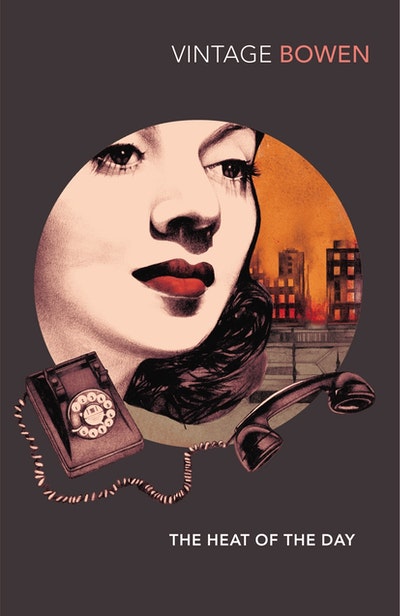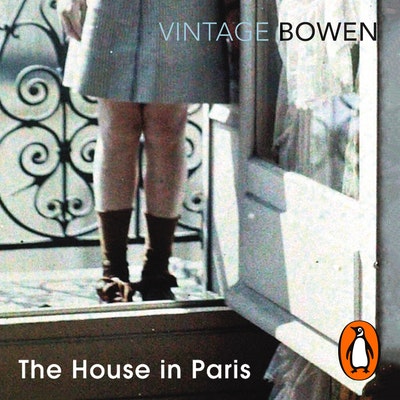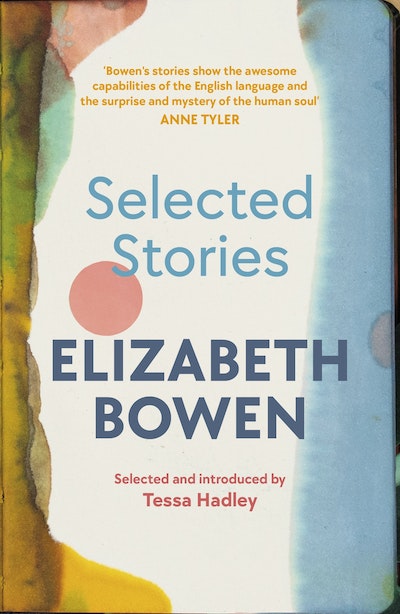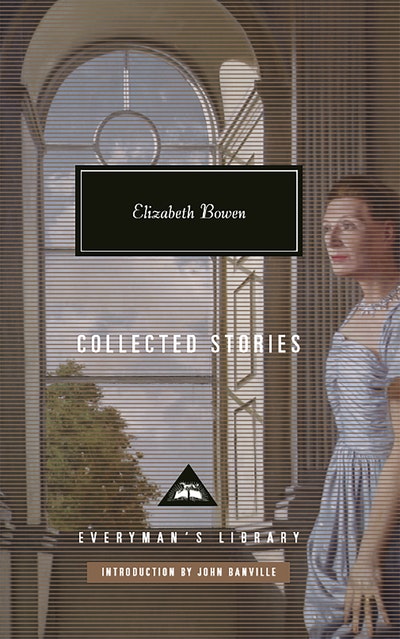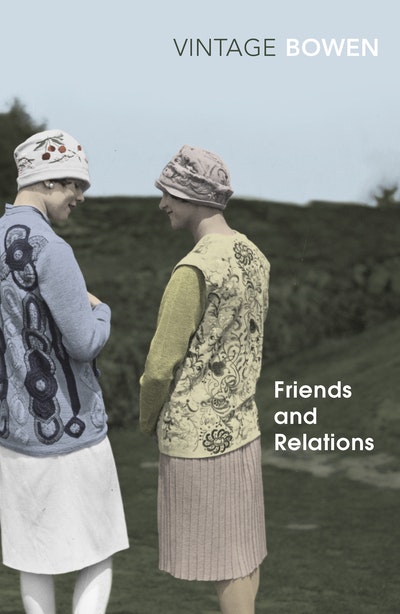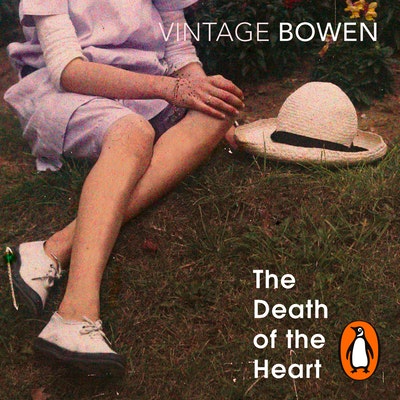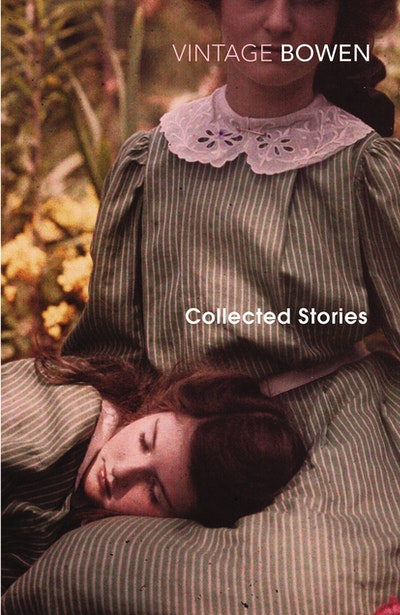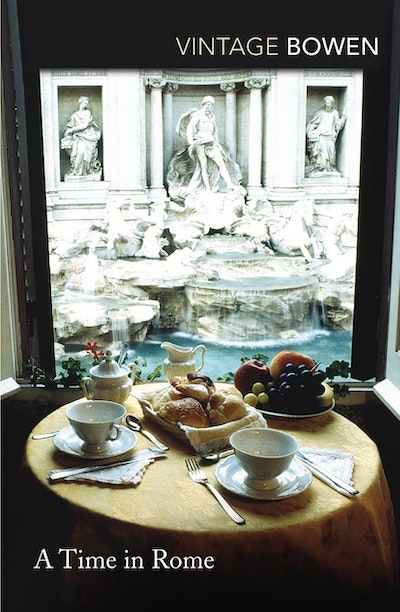- Published: 3 July 1998
- ISBN: 9780099276463
- Imprint: Vintage Classics
- Format: Paperback
- Pages: 400
- RRP: $35.00
The Heat of the Day
- Published: 3 July 1998
- ISBN: 9780099276463
- Imprint: Vintage Classics
- Format: Paperback
- Pages: 400
- RRP: $35.00
Probably the most intelligent noir ever written...The situation is surreal, the psychologizing profound, and the eerie inwardness trapped in Bowen's distinctive prose resonates inside a peculiar silence that fills the reader's heart with dread
Los Angeles Times
One of three quintessential London 'war' novels, the others being Patrick Hamilton's Hangover Square and Graham Greene's The End of the Affair. No other novel conjures the spooky solemnity of the Blitz so adroitly
Time Out
A tensely charged story of betrayal
Independent
Marvellously witty, poetic and socially perceptive novels... she is bang on form with The Heat of the Day
John Bayley, Independent
This world reminds you of both Henry James and Graham Greene...a world both placid and violently fractured...Bowen's prose is crisp and precise, but also suggestive and haunting...She combines moral refinement and pitiless but compasionate understanding
Sunday Times
A haunting novel of bad faith and betrayal
Guardian
Brilliant descriptions of London during the Blitz
Spectator
[Bowen] startles us by sheer originality of mind and boldness of sensibility into seeking our world afresh. . . . Out of the plainest things--the drawing of a curtain--she can make something electric and urgent
V. S. Pritchett
Dense as a poem with symbol and suggestion. . . The work of a writer [of] rich and winning gifts
Time
Imagine a Graham Greene thriller projected through the sensibility of Virginia Woolf
Atlantic Monthly
a book of signal wit and beauty that shows many ways of being a woman under intolerable strain... The electrifying ubiquity of danger - the novel is set in London under the Blitz - summons tenderness and the appetite for life. London itself breathes, turns and glows throughout
Candia McWilliam, The Lady
Both of its time and timeless, a spy tale and a haunting love story... She is the supreme mid-century anatomist of the heart, with a unique sensitivity to the lives of ordinary English men and women in extremis
Guardian
Her novels and essays are alive with the erotic tensions of the blackout, the Blitz and the heightened pleasures of sex in the proximity of death. Preternaturally sensitive to colour, light and detail, she caught the nuances of the unnameable new sensations Londoners experienced
London Review of Books
Stylistically intense…[a] richly atmospheric portrait of a city and its residents under constant threat. It has a cast of memorable female characters who outshine the men
Daily Mail
A tensely charged story of betrayal
Independent
One of three quintessential London 'war' novels, the others being Patrick Hamilton's Hangover Square and Graham Greene's The End of the Affair. No other novel conjures the spooky solemnity of the Blitz so adroitly
Time Out
Brilliant descriptions of London during the Blitz
Spectator
Marvellously witty, poetic and socially perceptive novels... she is bang on form with The Heat of the Day
John Bayley, Independent
A haunting novel of bad faith and betrayal
Guardian
This world reminds you of both Henry James and Graham Greene...a world both placid and violently fractured...Bowen's prose is crisp and precise, but also suggestive and haunting...She combines moral refinement and pitiless but compasionate understanding
Sunday Times
[Bowen] startles us by sheer originality of mind and boldness of sensibility into seeking our world afresh. . . . Out of the plainest things--the drawing of a curtain--she can make something electric and urgent
V. S. Pritchett
Dense as a poem with symbol and suggestion. . . The work of a writer [of] rich and winning gifts
Time
Imagine a Graham Greene thriller projected through the sensibility of Virginia Woolf
Atlantic Monthly
a book of signal wit and beauty that shows many ways of being a woman under intolerable strain... The electrifying ubiquity of danger - the novel is set in London under the Blitz - summons tenderness and the appetite for life. London itself breathes, turns and glows throughout
Candia McWilliam, The Lady
Probably the most intelligent noir ever written...The situation is surreal, the psychologizing profound, and the eerie inwardness trapped in Bowen's distinctive prose resonates inside a peculiar silence that fills the reader's heart with dread
Los Angeles Times
